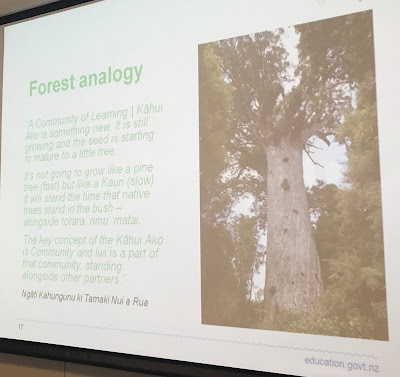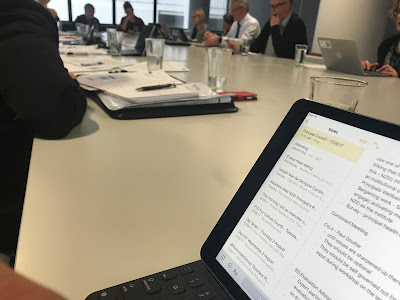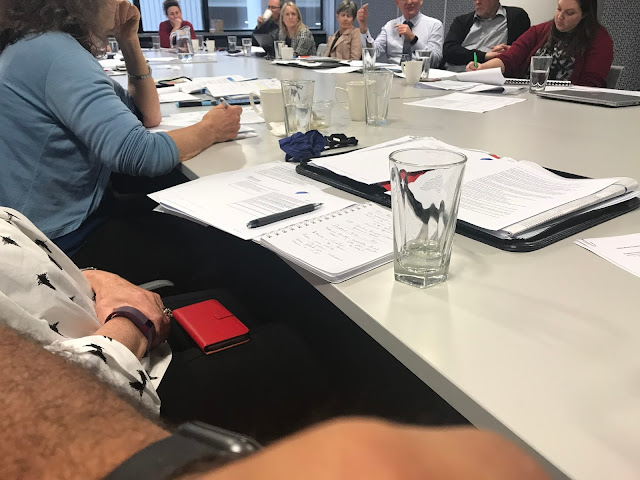On Friday 18 August I represented the NZ Pasifika Principals Association (NZPPA) at the
Investing in Educational Success (IES) Evaluation and Advisory Group
Investing in Educational Success (IES) is a Government initiative aimed at lifting student achievement as well as offering new career opportunities for teachers and principals. As an association to be at this table is an honour and privilege and our voice is valued. Members on this group are: NZPPA, NZEI, NZAIMS, PPTA, NZPF, NZCER, TLIF, ERO, NZ Area Schools, NZSTA, Education Council, Massey University, University of Auckland, New Appointments National Panel and of course Ministry of Education Staff.
There are two meetings that are involved and the first one is:
(1) IES Evaluation Advisory sub-group.
This meeting is chaired by Simon Williamson, Manager Research and Evaluation, MoE.
As part of the agenda we were presented with an excellent report (Tabled and available if needed) on the findings of a meeting that was held on Tuesday 15 August between representatives of NZEI, PPTA, ERO and the MoE who met to workshop the following questions:
- How effectively are Communities of Learning (CoL or Kahui Ako) developing?
- As at August 2017 – 72/197 have endorsed their achievement challenges.
- Most Kahui Ako are in their pre implementation phase.
- Only 60% (118/197) have an active leader.
- It is clear establishing a Kahui Ako takes time – about a year to have achievement challenges endorsed. Keeping this in mind when reflecting on the unfair pressure placed on schools to establish and develop a healthy and collaborative relationship.
- What aspects are working well?
- Where they are aware of them, people appear to be supportive of the ideas behind Kahui Ako and what they represent: working collaboratively to address common issues, strengthening teaching practice through sharing expertise and supporting stronger pathways and transitions for students
- Good engagement from some leaders.
- Implementation support valued from Regional Advisors and Expert Partners.
- Improved collaboration horizontally – between the leaders of schools
- Successes are evident – some schools have found no barriers to forming Kahui Ako because of strong existing relationships.
- Whats not working well and how can these be strengthened or addressed?
- Leadership roles and across school teaching roles are vulnerable.
- Kahui Ako Leaders – Risk burnout, still not moved from focussing on just their own school but a shift to collective ownership, struggle to find the right people for the roles, leadership roles sitting with Principals and not distributed leadership model
- Across and Within School Teachers – Not getting support from their colleagues, perceptions around transparency of appointment processes, level of pay in comparison to current staff a source of resentment, Roles and responsibilities not well defined, balance between school and Kahui Ako responsibilities is not balanced, not enough time to do the role, overlapping roles Specialist Classroom Teacher and WST
- Backfilling positions continues to be difficult – appropriate relievers, Principals in the leadership role struggle to relinquish 20% of their principal role in order to release time for the leadership role – due to increasing workload of the Principal
- Achievement challenges not getting buy-in – Low ownership to achievement challenges being reported lack of collective ownership.
- Ownership needs to be strengthened and ownership broadened – move from Horizontal to more vertical and broader consultation (Iwi)
We were also presented with a very detailed and honest report on the work carried out by Cathye Haddock and her team from the MoE on Iwi voice – engagement with Kāhui Ako to date, and best practice. Here are some of my notes from their presentation:
 |
| Photo: a “Forest Analogy” related to Kahui Ako |
- Some Iwi were disappointed to find out about Kahui Ako after they were formed.
- They want to be involved from the beginning. They want to be a part of the design.
- Concerned about the lack of partnership approach when schools did not approach them.
- Great way to build connections through the community
- Ways Iwi can be involved in Kanui Ako: Stewardship and Governance Groups, Leadership roles alongside stakeholders, on selection panels for Kanui Ako positions, Contribute to change management, receive reports on the Achievement Challenges.
- What Iwi can contribute to Kahui Ako: Support whanau to engage, strengthen cultural competence of leaders and educators, Support and develop iwitanga (History and stories of Iwi), access to support services, support and strengthen transitions, provide
 |
| Photo: IES Evaluation Advisory Sub Group Meeting |
The second meeting is the:
(2) IES Advisory Group.
This meeting is chaired by Iona Holsted,
Secretary of Education.
- Facilitated workshop to begin the development of a Shared Narrative about Communities of Learning – Led by Ross Clapcott, Policy Director, Education System Policy, MoE
- This was a very long, detailed and valuable process of creating a narrative about the who, what, where, when, how and why for CoL’s.
- This was created with the understanding that the desired audience will be CoLs, parents and advisors and they need to all understand what each part means.
- Update on Curriculum Tool and presentation – led by Marion Fitchett, Implementation and Practice Lead, Early Learning and Student Achievement and Stephen Simes, Business Analyst, Early Learning and Student Achievement, MoE
- A reference group of 11 principals covering 10 CoL’s were brought in to review and make suggestions on the curriculum tool.
- It has been rolled out to two CoL’s over four weeks to use and explore the tool.
- So far the MoE has received some really good feedback .
- Content is rich and useful and relevant to the schools and CoLs curriculum’s.
- In the form of a website in an easily presentable format
- Only when CoLs they are approved they can access the Curriculum site

